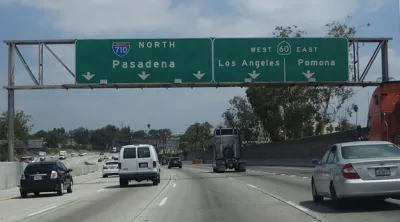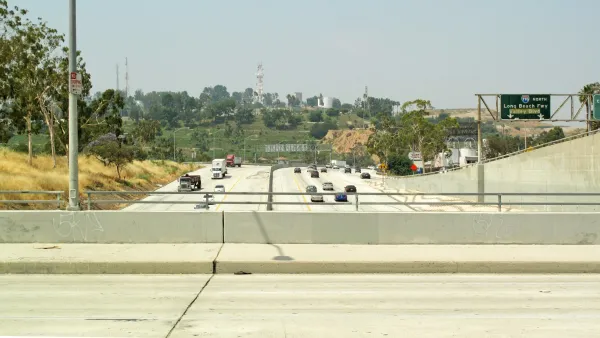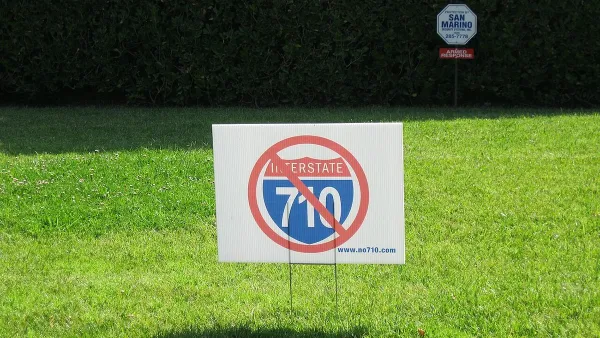The agency's board members spoke out forcefully against air pollution and displacement, but stopped short of completely rejecting the project, looking instead to cleaner vehicles and regulations that mitigate community concerns.

Despite decades of denouncement from community activists and state and federal agencies, the board of the Los Angeles County Metropolitan Transportation Agency denounced, "but did not officially scrap" a project that calls for the widening of the 710 Freeway. As Liam Dillon writes in the Los Angeles Times, "[t[he half-hour debate at the Los Angeles County Metropolitan Transportation Authority’s board meeting highlighted transportation officials’ struggles in addressing the freeway’s vital role in the region’s economy and its environmental harms to the predominantly low-income Latino neighborhoods in Long Beach, Lynwood and Bell Gardens and others nearby." In March, the federal Environmental Protection agency (EPA) told Metro that "the expansion would increase heavy-duty freight travel and probably violate Clean Air Act standards."
In addition to concerns about poor air quality, which local residents already suffer from, the current expansion plan calls for "the possible eviction of more than 100 families and 150 businesses, raising concerns that those displaced would not be able to find alternative places to live given L.A.’s housing affordability crisis." But "[t]he southern portion of the 710 Freeway, which runs about 20 miles from Long Beach to Alhambra, is one of the most critical economic transportation corridors in the country, linking the Ports of Los Angeles and Long Beach with the region’s network of warehouses and roadways that power the nation’s consumer economy."
Proposed mitigations include "a new lane for zero-emission trucks along nearly the entire stretch from the ports through East Los Angeles and upgraded ramps and interchanges" and a clear stand against displacement. Outgoing Metro CEO Phillip Washington said, for the project to move forward, it must require local hiring, and that "[t]here should be zero emissions. There should be no displacements." Opponents of the freeway would rather see the project rejected altogether, "but were pleased that board members were clear that the current proposal wasn’t likely to advance."
FULL STORY: L.A. transportation leaders stop short of pulling the plug on 710 Freeway expansion

Analysis: Cybertruck Fatality Rate Far Exceeds That of Ford Pinto
The Tesla Cybertruck was recalled seven times last year.

National Parks Layoffs Will Cause Communities to Lose Billions
Thousands of essential park workers were laid off this week, just before the busy spring break season.

Retro-silient?: America’s First “Eco-burb,” The Woodlands Turns 50
A master-planned community north of Houston offers lessons on green infrastructure and resilient design, but falls short of its founder’s lofty affordability and walkability goals.

Test News Post 1
This is a summary

Analysis: Cybertruck Fatality Rate Far Exceeds That of Ford Pinto
The Tesla Cybertruck was recalled seven times last year.

Test News Headline 46
Test for the image on the front page.
Urban Design for Planners 1: Software Tools
This six-course series explores essential urban design concepts using open source software and equips planners with the tools they need to participate fully in the urban design process.
Planning for Universal Design
Learn the tools for implementing Universal Design in planning regulations.
EMC Planning Group, Inc.
Planetizen
Planetizen
Mpact (formerly Rail~Volution)
Great Falls Development Authority, Inc.
HUDs Office of Policy Development and Research
NYU Wagner Graduate School of Public Service




























